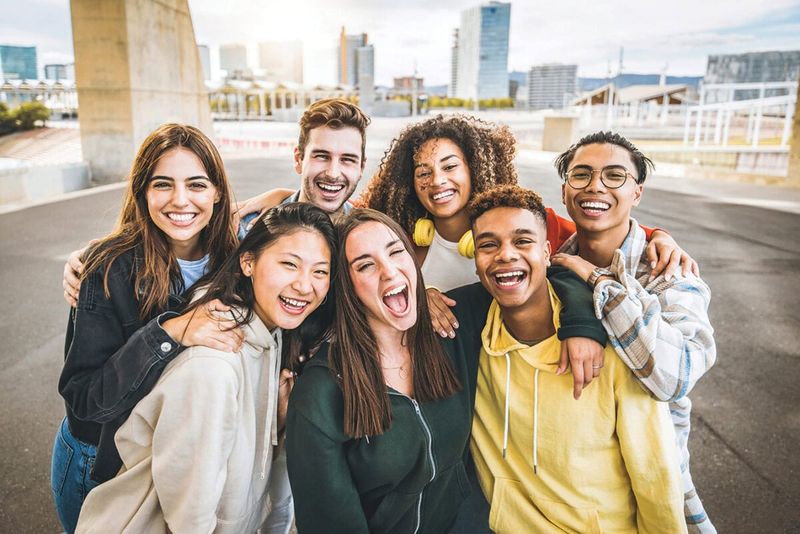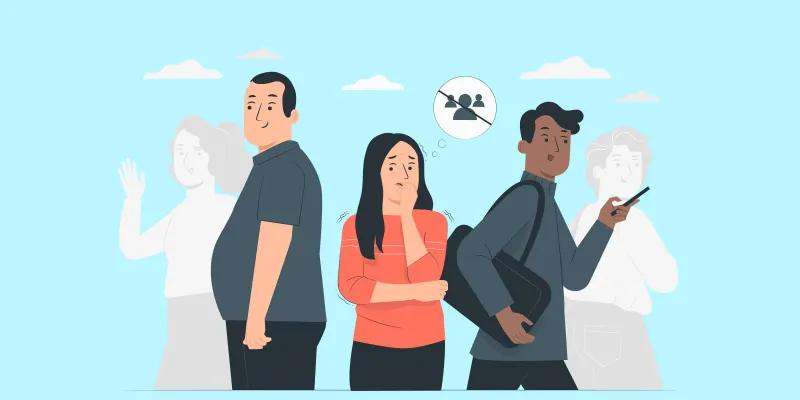Navigating the complex social landscape of today, Gen Z faces unique challenges in forming friendships. With the digital age in full swing, the dynamics of relationships have shifted significantly from previous generations. This shift is characterized by increased reliance on technology, altered communication patterns, and a cultural emphasis on individuality and personal success.
As a result, many in Gen Z find themselves struggling to forge and maintain lasting friendships. This blog explores eight key reasons why Gen Z might not have as many friends as their predecessors, delving into the social, technological, and cultural factors at play.
1. Digital Overload

In a world dominated by screens, Gen Z often finds themselves bombarded with digital interactions. While technology offers connection, it can also overwhelm. Many young people struggle to balance real-life relationships with their digital lives. This digital overload can lead to feelings of isolation and disconnection from those physically around them.
Despite numerous online friends, the lack of deep, meaningful connections can leave Gen Z feeling lonely. They might interact with dozens online daily, yet find it challenging to maintain real-world friendships. Prioritizing screen time over face-to-face interactions can create a barrier to forming genuine bonds.
2. High Expectations

Gen Z tends to hold high expectations for friendships, often seeking perfect connections. This can make forming new relationships daunting. Many feel pressure to find friends who align perfectly with their values and interests.
This desire for ideal friendships can lead to disappointment, as no relationship is flawless. Pursuing perfection might cause them to overlook potential friends due to minor differences.
By focusing on idealized friendships, Gen Z may inadvertently limit their social circles. Embracing imperfections and valuing diverse perspectives can lead to more fulfilling and lasting connections.
3. Individualism

The cultural emphasis on individualism influences Gen Z’s approach to friendships. Valuing personal growth and self-discovery, many prioritize their own journeys over socializing. This focus can lead to fewer connections.
While independence is empowering, it might also result in missed opportunities for friendship. Gen Z often navigates life solo, valuing self-sufficiency.
However, striking a balance between independence and social engagement is key. By embracing collaboration and shared experiences, Gen Z can enrich their lives with meaningful interactions, fostering a network of supportive friends.
4. Social Anxiety

Social anxiety is prevalent among Gen Z, impacting their ability to form friendships. The pressure to make good impressions and fear of judgment can be overwhelming. Many find social situations daunting, leading to avoidance.
This anxiety can hinder their willingness to engage with peers and build connections. Despite wanting friendships, the fear of rejection often holds them back.
Encouraging gradual exposure to social settings and practicing self-compassion can help alleviate anxiety. Building confidence in social skills allows Gen Z to form and nurture friendships, despite initial apprehensions.
5. Transitory Lifestyles

Frequent transitions characterize Gen Z’s lifestyles, affecting their ability to maintain friendships. Many are in stages of life filled with change, such as moving for college or work. This constant movement can disrupt social networks.
Building stable friendships becomes challenging when locations and environments change frequently. The lack of consistent physical presence can strain relationships over time.
To combat this, maintaining digital connections and making efforts to stay in touch can preserve friendships. Finding stability in routines and shared interests helps Gen Z sustain meaningful relationships despite transitions.
6. Diverse Identities

Gen Z embraces diverse identities, influencing their social dynamics. While inclusivity is celebrated, it can also create challenges in forming friendships. Finding individuals who truly understand and respect one’s identity takes effort.
The diversity within Gen Z encourages exploration of different communities, sometimes leading to fragmented social circles. Balancing various identities and friendships requires careful navigation.
Celebrating diversity while seeking common ground can enhance social bonds. Understanding and respecting differences allows Gen Z to build inclusive friendships, fostering a sense of belonging and connection across varied identities.
7. Busy Schedules

Many in Gen Z juggle packed schedules, leaving limited time for friendships. Between academic commitments, part-time jobs, and personal projects, socializing can become a low priority.
The desire for success often means sacrificing social time, leading to fewer friendships. Balancing responsibilities and leisure is a constant challenge for Gen Z.
Prioritizing time management and setting aside specific periods for social activities can help. Making conscious efforts to connect with others amidst busy lives enables Gen Z to maintain and grow their social circles.
8. Mistrust and Cautiousness

Gen Z often approaches friendships with caution, shaped by a mistrust influenced by societal issues. Growing up in an era of heightened awareness about personal safety, many are wary of forming new connections.
This cautious approach can lead to hesitancy in opening up to others. While staying safe is important, being overly guarded can hinder the formation of genuine friendships.
Building trust gradually and seeking authentic connections can help overcome this barrier. Encouraging open communication and vulnerability allows Gen Z to form deeper relationships, navigating friendships with both care and openness.

Well, hello there!
My name is Jennifer. Besides being an orthodontist, I am a mother to 3 playful boys. In this motherhood journey, I can say I will never know everything. That’s why I always strive to read a lot, and that’s why I started writing about all the smithereens I came across so that you can have everything in one place! Enjoy and stay positive; you’ve got this!

